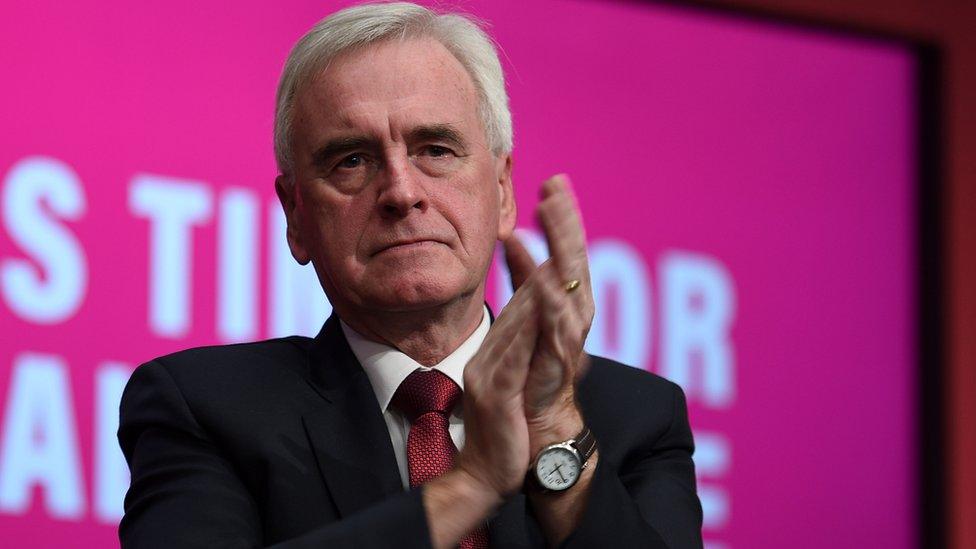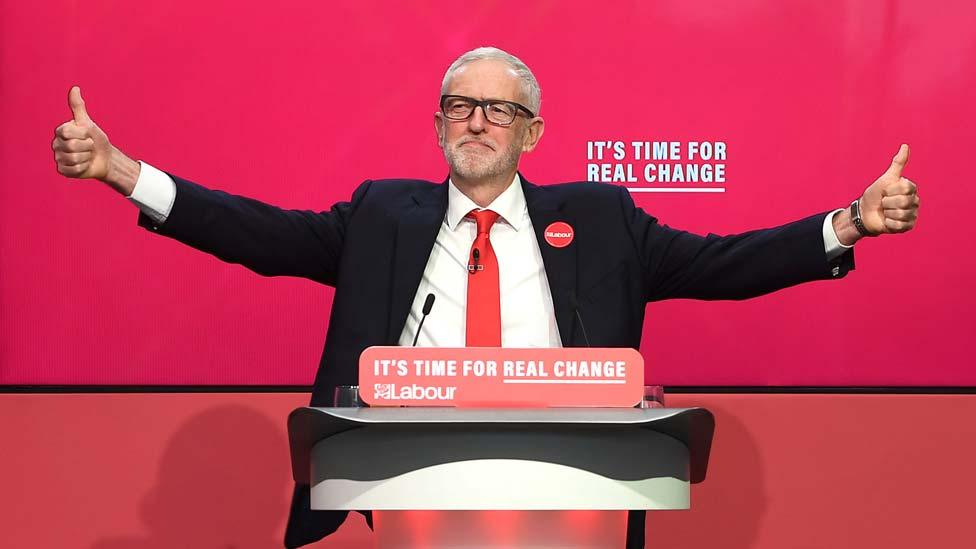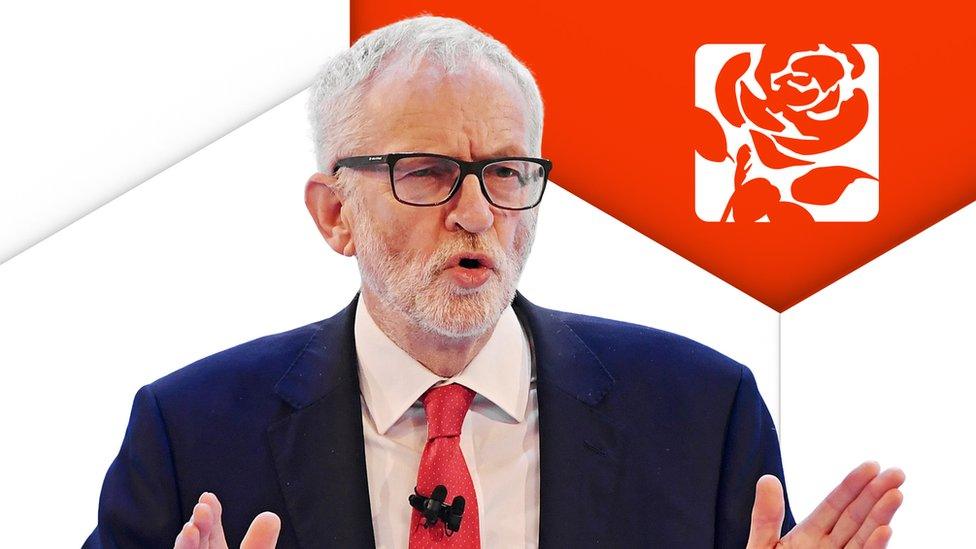Labour eyes 'radical' plan for companies
- Published
- comments

Shadow chancellor John McDonnell wants to reward workers better
Labour's manifesto is one of the most radical proposed overhauls of the way companies are owned and run in decades.
Plans to nationalise the big six energy firms, the national energy grid, the rail and water industries, the Royal Mail and the broadband arm of BT would mark the biggest ownership grab by the state since the nationalisations that occurred after the outbreak of World War Two.
Those companies that Labour does not want to own and operate will also face a corporate governance revolution.
Shadow chancellor John McDonnell has previously said that the group with the longest-term stake in a company is usually the workers and yet their involvement in decision-making was limited.
Under Labour's plan, employees will make up one-third of reformed company boards and have an enhanced share of company profits through an Inclusive Ownership Fund, into which listed companies will transfer 1% of their shares every year for the next 10 years.
Any dividends on these shares derived from UK earnings will be distributed to workers, subject to a cap of £500 a year, with any additional dividends directed to a fund to train green apprenticeships.
This is a less radical proposal than the original plan to take ownership of 10% of any UK-listed company, meaning UK employees (and, above the cap, the government) would have a claim on 10% of the companies' worldwide earnings. For companies such as HSBC and Shell, that could have run to many billions.
Labour will exempt those companies who already have an employee profit-sharing scheme which delivers similar benefits to those above.
It seems that Labour is hoping the threat of state expropriation of shares on behalf of the workers will act as a stick to encourage companies to set up their own employee ownership schemes.
Windfall tax
The oil and gas industry will fund an £11bn scheme to retrain workers in the North Sea for jobs in lower-carbon-intensive industries.
This has angered some union representatives in Scotland, who fear it will accelerate job losses in an already dwindling North Sea oil industry.
How this windfall tax will be designed and applied will be the subject of a consultation and Labour has promised that oil and gas workers will not be "hung out to dry".
People who start their own business have enjoyed preferential tax treatment in the past. That will go.
The existing entrepreneurs' relief, which imposes a tax of just 10% on the capital gain when you sell a business you started, instead of 28% on other capital gains, will be abolished.
Along with bringing the capital gains rate into line with a person's marginal rate of income tax, that means many entrepreneurs could face a five-fold increase in the tax they pay on any business they sell.
Will that demotivate people from starting their own business?
Possibly. Although I don't know many entrepreneurs who started a business simply to take advantage of entrepreneurs' tax relief.
Corporation tax
The increase in corporation tax from 19% to 26%, staggered over the next three years, is the largest source of new money for Labour, and yet I suspect it will not cause the biggest howls of outrage.
After all, 19% is one of the lowest rates in the EU and there was no real clamour on the part of business for it to carry on falling to the previous government's target of 17%.
Indeed, the Conservatives abandoned that plan themselves on Monday.
The real howl from business will come from the cumulative effect this raft of proposals will have:
Scrapping corporate tax reliefs and incentives for R&D funding
A sharper rise in the living wage than proposed by the Tories
A ramp-up in corporation tax and levies on financial transactions - a tool that many businesses use to insure themselves against moves in foreign exchange or interest rates.
Above all, the concerns of business are ideological as much as practical. This is a manifesto which seems to say that business can't be trusted to do the right thing and run itself in the interests of other stakeholders apart from its owners.
Collectively, the proposals represent an attempt to drive rewards away from capital owners towards the workers.
The Labour Party will tell you that business only has itself to blame that this is necessary.
It describes its own proposals as "radical". That's one thing business will have no problem agreeing with.
- Published22 November 2019

- Published21 November 2019
- Published21 November 2019

